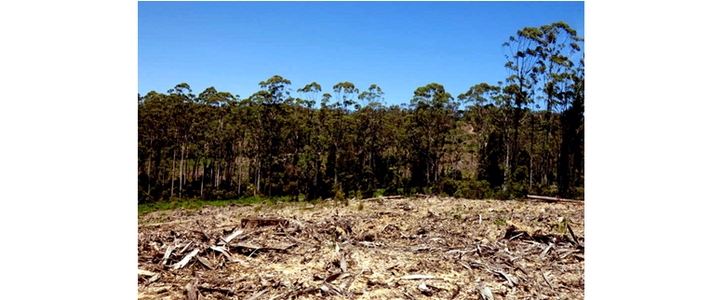50 signatures reached
To: The Hon. Gladys Berejiklian MP; Matt Kean, Minister for Energy and Environment; Kate Washington Shadow Minister for Environment and Heritage
Stop native forest logging for biofuel

The wood chipping of native forests in NSW for biofuel has commenced and the NSW Government must stop this industry.
We applaud the Government's renewable energy plan for this State using wind and solar to generate electricity but biofuel should not be included as a way to produce electricity.
We applaud the Government's renewable energy plan for this State using wind and solar to generate electricity but biofuel should not be included as a way to produce electricity.
Why is this important?
Wood chipping for biofuel is highly destructive for our environment and will have a negative impact on biodiversity, water quality and be a major contributor to climate change.
In Europe, South Eastern America and in Asia the biofuel industry has caused the destruction of millions of hectares of native forests. In NSW there are plans by the Forestry Corporation to clear-fell 140,000 hectares of native forest between Taree and Grafton.
There are also plans to recommission the Redbank Power Station near Singleton. If this power station is used for biofuel about 1 million tons of wood chips will be needed and 1.8 million tons of CO2 would be emitted each year.
Other key points:
- Electricity from biofuel is 3 times more expensive than solar.
- Biofuel emits up to 80% more CO2 than coal (IPPC figure).
- The wood chipping of native forests is a cost to the people of NSW while saving the forest will generate millions of dollars per year in tourism. A University of Newcastle Study (The Great Koala National Park Economic Impact Analysis and Environmental Benefit Assessment. 2021) found that the protection of 315,000 hectares of native forest would generate $1.2 billion in economic output and create up to 10,000 new jobs.
- The biofuel industry is not renewable - it would take many decades for trees to take up carbon again and soils are often depleted after tree removal. Trees store carbon so cutting them down greatly contributes to climate change.
In Europe, South Eastern America and in Asia the biofuel industry has caused the destruction of millions of hectares of native forests. In NSW there are plans by the Forestry Corporation to clear-fell 140,000 hectares of native forest between Taree and Grafton.
There are also plans to recommission the Redbank Power Station near Singleton. If this power station is used for biofuel about 1 million tons of wood chips will be needed and 1.8 million tons of CO2 would be emitted each year.
Other key points:
- Electricity from biofuel is 3 times more expensive than solar.
- Biofuel emits up to 80% more CO2 than coal (IPPC figure).
- The wood chipping of native forests is a cost to the people of NSW while saving the forest will generate millions of dollars per year in tourism. A University of Newcastle Study (The Great Koala National Park Economic Impact Analysis and Environmental Benefit Assessment. 2021) found that the protection of 315,000 hectares of native forest would generate $1.2 billion in economic output and create up to 10,000 new jobs.
- The biofuel industry is not renewable - it would take many decades for trees to take up carbon again and soils are often depleted after tree removal. Trees store carbon so cutting them down greatly contributes to climate change.

